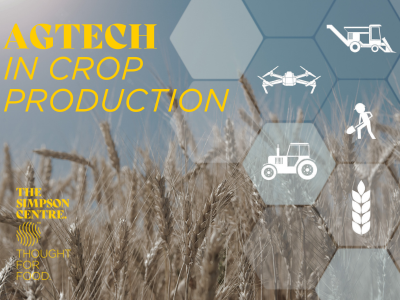Funding FAQ
The School of Public Policy is committed to academic integrity and academic freedom. We are sometimes asked what steps we take to ensure that our research is unbiased and objective. That’s why we created this FAQ. If you have additional questions about our standards for academic excellence, feel free to send an email with your question to dana.fenech@ucalgary.ca.
How is The School funded?
Funding for The School includes a combination of: Operating funds from the University of Calgary; tuition and other program revenues; research grants from a variety of granting agencies and councils; and funds from donors.
Is The School defending a particular ideology or serving specific interests?
The School does not have an ideology. We believe that the best policy comes from evidence based and rigorous empirical research. Further, The School does not do advocacy or private consulting. Its unique commitment is to the common good, independent of social and economic groups, or political parties.
How does The School ensure that its research meets the highest standards in terms of independence and quality?
All research is overseen and guided by an academic research committee comprised of faculty members to the extent that research is supported by grants from granting agencies, foundations and governments or by donations (philanthropy) from individuals or corporations there are a number of policies and procedures in place to ensure independence and quality. These include:
- All research, including topics and authors, is under the purview of an academic research committee, chaired by a faculty member serving as the Director. While suggestions or advice may be sought from individuals outside of The School, they are never part of the decision making which remains entirely in the hands of faculty.
- In general, funding for research activities is supported by pooled funds, including funding from research grants and The terms of the research grants often requires that there be matching funds from donors or other granting agencies. Typically, funding for an individual research project will come from at least four or five different funding sources.
What steps does The School take to ensure no bias or groupthink creeps into its research?
All research is peer reviewed, twice. That means the research is provided anonymously to two outside experts who are asked for opinions on the substance of the research, and asked to point out any shortcomings or biases, real or perceived, in the work. Authors of our research are obligated to address peer review comments to the satisfaction of an Area Director at The School. Research is reviewed two more times, once by The School’s Research Director, and then by an outside editor. The Research Director specifically looks for substantive problems, including bias. And, all our research is published online, for other experts and the general public to read, assess and critique.
How does The School avoid conflict of interest?
Our academics are at the top of their fields. As such, they are often asked to participate in work for governments, the private sector or non-profit organizations. But, the University of Calgary and The School abide by a strict conflict of interest code. As noted, The School does not do advocacy or private consulting work.
Does The School have advisory committees that include people from outside academia?
Part of our mission is to break down the walls that have traditionally existed between business, government and academia. That is necessary in order to produce the best research on public policy issues and is why we have an Advisory Council that includes community, government and business leaders from across the country to offer advice. As well, some programs have their own advisory boards made up of academics, government officials, and business and community leaders. But advising is not the same as deciding: the advisory committees do not choose what research we do, who conducts it or who reviews it.
How does The School ensure independence of management, budgeting and hiring?
On management issues, including budget, hiring, programming and planning, The School reports directly to a Management Board chaired by the Provost of the University and made up of other members of the University executive and senior leadership teams.
Why do individuals, granting councils and companies contribute funding to The School?
Because we produce objective, relevant and practical research that proves valuable in terms of informing the policy agenda in Canada and globally. We publish about 50 full research papers annually. We hold over 50 public events each year attracting tens of thousands of participants. We are by far the most influential policy school in Canada. We think that’s worth contributing to.


